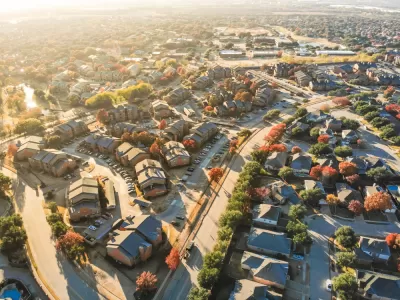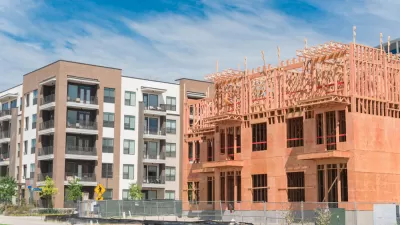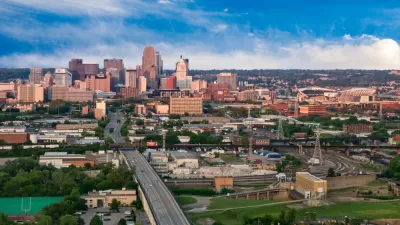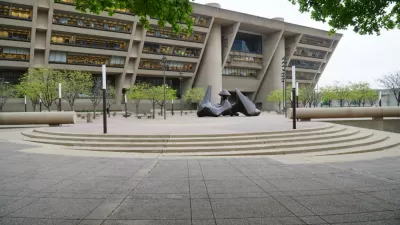The ForwardDallas plan is part of the city’s effort to make address exclusionary zoning practices, increase affordable housing for all residents, and bring essential businesses and services to more areas.

A land use plan years in the making in Dallas seeks to redress historic inequity in the city’s land use patterns, reports Leah Waters in The Dallas Morning News. The city will now hold public meetings to receive community input on the draft plan.
The plan, known as ForwardDallas, “will be the city’s first comprehensive land-use plan, which will be one factor in future zoning decisions, including how the city will accommodate more housing for a growing population,” said interim director of Dallas’ Planning and Urban Design department Andrea Gilles.
Rather than a strict rulebook, the plan will be a guide that “will help decision-makers understand how the land should be used without restricting certain kinds of development,” according to Gilles. It will also create more clarity around land use in areas that currently have no clear development guidelines.
“ForwardDallas’ color-coded map designates 12 particular “placetypes” or kinds of uses, such as Traditional Residential, which should be used for single-family homes and auxiliary dwellings, and Blended Residential, which is meant for single-family and multifamily homes,” but none of these types are limited to just one use. The plan is designed to allow for ‘context-sensitive’ land use decisions.
“The plan also allows the community to influence the “adjacency uses” of placetypes, which would allow neighborhoods to shape how near industrial development is to their homes,” Waters adds.
FULL STORY: City releases draft of first land-use plan to address inequity that’s divided Dallas

Trump Administration Could Effectively End Housing Voucher Program
Federal officials are eyeing major cuts to the Section 8 program that helps millions of low-income households pay rent.

Planetizen Federal Action Tracker
A weekly monitor of how Trump’s orders and actions are impacting planners and planning in America.

Ken Jennings Launches Transit Web Series
The Jeopardy champ wants you to ride public transit.

Washington Legislature Passes Rent Increase Cap
A bill that caps rent increases at 7 percent plus inflation is headed to the governor’s desk.

From Planning to Action: How LA County Is Rethinking Climate Resilience
Chief Sustainability Officer Rita Kampalath outlines the County’s shift from planning to implementation in its climate resilience efforts, emphasizing cross-departmental coordination, updated recovery strategies, and the need for flexible funding.

New Mexico Aging Department Commits to Helping Seniors Age ‘In Place’ and ‘Autonomously’ in New Draft Plan
As New Mexico’s population of seniors continues to grow, the state’s aging department is proposing expanded initiatives to help seniors maintain their autonomy while also supporting family caregivers.
Urban Design for Planners 1: Software Tools
This six-course series explores essential urban design concepts using open source software and equips planners with the tools they need to participate fully in the urban design process.
Planning for Universal Design
Learn the tools for implementing Universal Design in planning regulations.
Heyer Gruel & Associates PA
Ada County Highway District
Institute for Housing and Urban Development Studies (IHS)
City of Grandview
Harvard GSD Executive Education
Toledo-Lucas County Plan Commissions
Salt Lake City
NYU Wagner Graduate School of Public Service





























